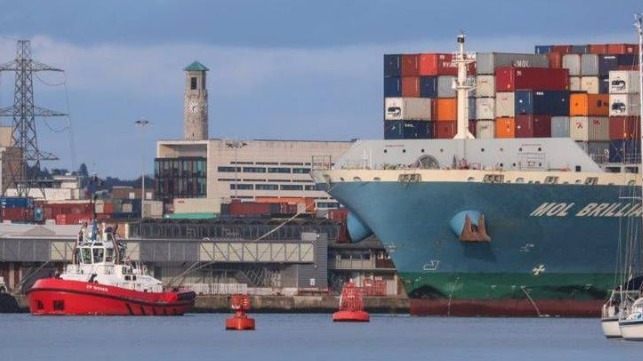British Ports Calls for Initiative to Advance Shore Power For Ships

The British Ports Association (BPA) has published new research examining the barriers to shore power in UK ports, setting out three proposals to support the industry to meet ambitious emissions reductions targets.
Shore power, also known as cold ironing, is the provision of shore-based electricity to ships at berth, allowing them to turn off their auxiliary engines. He concept is popular with environmentalists as it permits ships in port to turn off the typically diesel auxiliary engines that are used to maintain power to the crew and passenger accommodations as well as and cargo operations.
“We recognize that whilst emissions from ports and ships are relatively small parts of the emissions puzzle, there is work to do to continue to bring them down,” said Mark Simmonds, Head of Policy at the British Ports Association. “Shore power is likely to play a role in reducing emissions from ships in ports in the future, but there are significant barriers to introducing it in UK ports. We believe that a green maritime fund is needed to support decarbonization in the ports and shipping sectors.
According to the BPA, there currently are no large scale shore power connections in UK ports, due to the prohibitively high capital costs associated with such projects. The price of electricity in the UK and a general lack of consistent demand also means that there is rarely a commercially viable business case for investing in shore power.
The report identifies three primary barriers and three proposed solutions looking at the high capital costs required for energy network upgrades; the high cost of electricity versus marine fuel and demand from the shipping industry to spur the development of shore power systems.
The BPA is proposing a “Green Maritime Fund” to support emissions reductions projects, as well as the removal of taxes on electricity from shoreside power and a goal-based approach to increasing demand for shore power.
Research undertaken by Arkevista for the BPA found that the total power usage of vessels at berth in the UK was over 641 Gigawatt hours of energy in 2019 - roughly 0.5% of the UK’s total energy demand.
Highlighting the lack of demand the research found that of the approximately 96,000 vessels worldwide it is estimated that currently only 1,500 have shore power capabilities with the majority being container ships. Further, they reported that just 1.5 percent of the ships on order are going to be equipped with shore power capabilities.
Mike Hughes, Schneider UK & Ireland Zone President, highlighted the potential benefits from shore power for the shipping industry in the U.K. “Research shows that by plugging into the power grid with 100 percent renewable electricity and turning off their auxiliary diesel engines, ships at berth in the UK could reduce emissions equivalent to taking between 84,000 and 166,000 diesel buses, or 1.2 million diesel cars off our roads.”
A copy of the full report is available at: BPA Report on Shore Power
